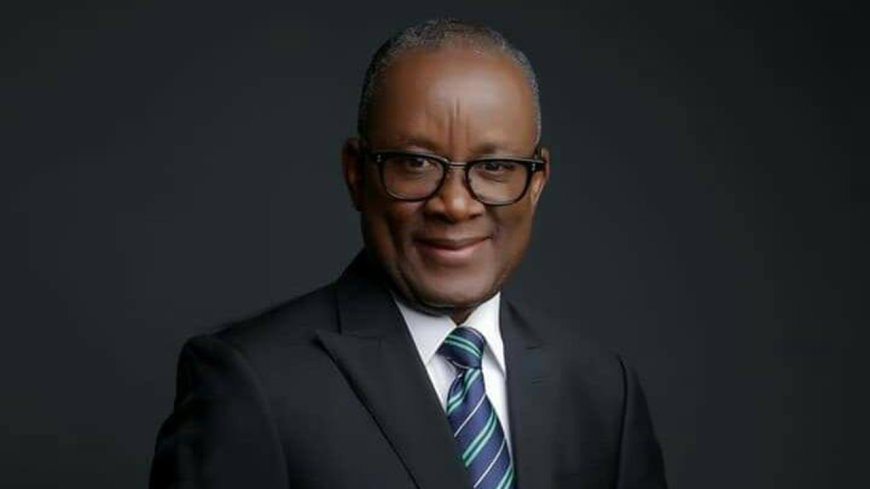Minister, BoI pledge reform, investments to revive textile industry

Textile workers seek implementation of Executive Order
Minister of State for Industry, Trade and Investment, John Owan Enoh, has reiterated the Federal Government’s commitment to reviving the country’s ailing textile and garment sector through targeted policy reform, industrial parks, investments and a national skills framework to restore global competitiveness.
Enoh, who gave the assurance at the weekend, during the textile and apparel revitalisation stakeholders’ meeting at the Bank of Industry (BoI) office in Lagos, emphasised that a functional textile industry is critical to the country’s economic revival, job creation, export growth and industrial competitiveness, particularly with the African Continental Free Trade Area (AfCFTA) opening new regional markets.
The minister warned that without urgent action, neighbouring countries could dominate Nigeria’s market through textile imports, undercutting local production and employment.
He said the Federal Government is drawing lessons from countries with successful industrialisation models, as well as seeking the private sector’s input to shape an effective policy framework.
Enoh, therefore, urged manufacturers to embrace innovation, efficiency, and forward-looking strategies, adding that many idle textile facilities still have functional machinery that can be brought back to life through strategic investment and collaboration.
Also, Managing Director of BoI, Dr Olasupo Olusi, said that during the tour of the various textile facilities in Kaduna and Lagos states, many firms are still struggling despite the government’s huge investments, with some unable to meet rising demand from both local and international buyers.
Olusi, who was represented by the Executive Director for Large Enterprises, Ifeoma Uzokpala, said the situation is “heartbreaking” as the huge capital investments had failed to prevent shutdowns and mass layoffs.
He stressed that while the government has played its part through policy support, funding, and price interventions, industry stakeholders must also rethink their approach to ensure long-term survival and competitiveness.
The BoI MD assured that the bank remains committed to supporting the textile sector, urging manufacturers to explore new strategies, partnerships and innovations to revive the industry and reclaim lost opportunities.
Meanwhile, an investment professional at the Africa Finance Corporation (AFC), Moussa Dabo, said Africa’s low labour costs, coupled with favourable trade tariffs, had positioned the continent to compete with established players like China.
Dabo, who noted AFC’s investment in the Gabon Special Economic Zone, where value from the timber industry rose from $250 million to $1.4 billion and created over 25,000 direct jobs through the development of support infrastructure, energy access, and market linkages, stressed that Nigeria’s textile revival must be anchored on cohesive policy, private sector investment, and strong government leadership, to place it on the global map of textile manufacturing.
On his part, the Country Representative of the United Nations Industrial Development Organisation (UNIDO), Philbert Johnson, commended the minister’s inclusive approach to stakeholders’ engagement, describing it as vital to unlocking sustainable industrial growth.
Johnson urged industry stakeholders to forge new partnerships, stressing that collective action is key to achieving inclusive and sustainable industrial development in Nigeria.
He pledged UNIDO’s continued support for Nigeria’s quest to accelerate industrial growth, enhance value addition and create decent jobs, particularly for women and youths.
Meanwhile, Director General of the Nigerian Textile Garment and Tailoring Employers (NTGTE), Hamma Kwajafa, raised industry concerns on the persistent smuggling, unfair import.
HOWEVER, the National Union of Textile, Garment, and Tailoring Workers of Nigeria (NUTGTWN) has called on the government at all levels to implement Executive Order 003.
NUTGTWN President, Peter Godonu, made the call in an interview with the News Agency of Nigeria (NAN), yesterday, in Lagos. Godonu said the Order mandated Ministries, Departments and Agencies (MDAs) to source their fabrics for uniforms internally and locally, rather than importing them.
According to him, the Order is not being enforced because the government has failed to patronise locally produced uniforms, thereby hindering the revival and survival of the textile industry.
Minister, BoI pledge reform, investments to revive textile industry









